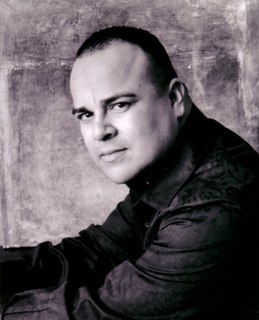A Quote by Henry David Thoreau
The poet is a man who lives at last by watching his moods. An old poet comes at last to watch his moods as narrowly as a cat does a mouse.
Related Quotes
A poet dares to be just so clear and no clearer; he approaches lucid ground warily, like a mariner who is determined not to scrape his bottom on anything solid. A poet's pleasure is to withhold a little of his meaning, to intensify by mystification. He unzips the veil from beauty, but does not remove it. A poet utterly clear is a trifle glaring.
It seems to me a purely lyric poet gives himself, right down to his sex, to his mood, utterly and abandonedly, whirls himself roundtill he spontaneously combusts into verse. He has nothing that goes on, no passion, only a few intense moods, separate like odd stars, and when each has burned away, he must die.
One of the appeals of William Carlos Williams to me is that he was many different kinds of poet. He tried out many different forms in his own way of, more or less, formlessness. He was also a poet who could be - he was a love poet, he was a poet of the natural order and he was also a political poet.
Matt Mason must be declared the poet laureate of the Midwest! No other native son celebrates the overlooked America, its unsung citizens (from the anonymous poets to the part-time English teachers), and its expansive indigenous landscape, as well as he does. Mason's poetry is humorous when he wants to be quirky, heartbreaking when he wants to be eloquent, and though he moves effortlessly into other moods and geographies, he always returns to his first and most enduring love (and to what he knows best)-his homeland.
A poet is no rattlebrain, saying what comes uppermost, and, because he says every thing, saying, at last, something good; but a heart in unison with his time and country. There is nothing whimsical or fantastic in his production, but sweet and sad earnest, freighted with the weightiest convictions, and pointed with the most determined aim which any man or class knows of in his times.
The poet's, the writer's, duty is to write about these things. It is his privilege to help man endure by lifting his heart, by reminding him of the courage and honor and hope and pride and compassion and pity and sacrifice which have been the glory of his past. The poet's voice need not merely be the record of man, it can be one of the props, the pillars to help him endure and prevail.
One more royal trait properly belongs to the poet. I mean his cheerfulness, without which no man can be a poet,--for beauty is his aim. He loves virtue, not for its obligation, but for its grace; he delights in the world, in man, in woman, for the lovely light that sparkles from them. Beauty, the spirit of joy and hilarity, he sheds over the universe.


































